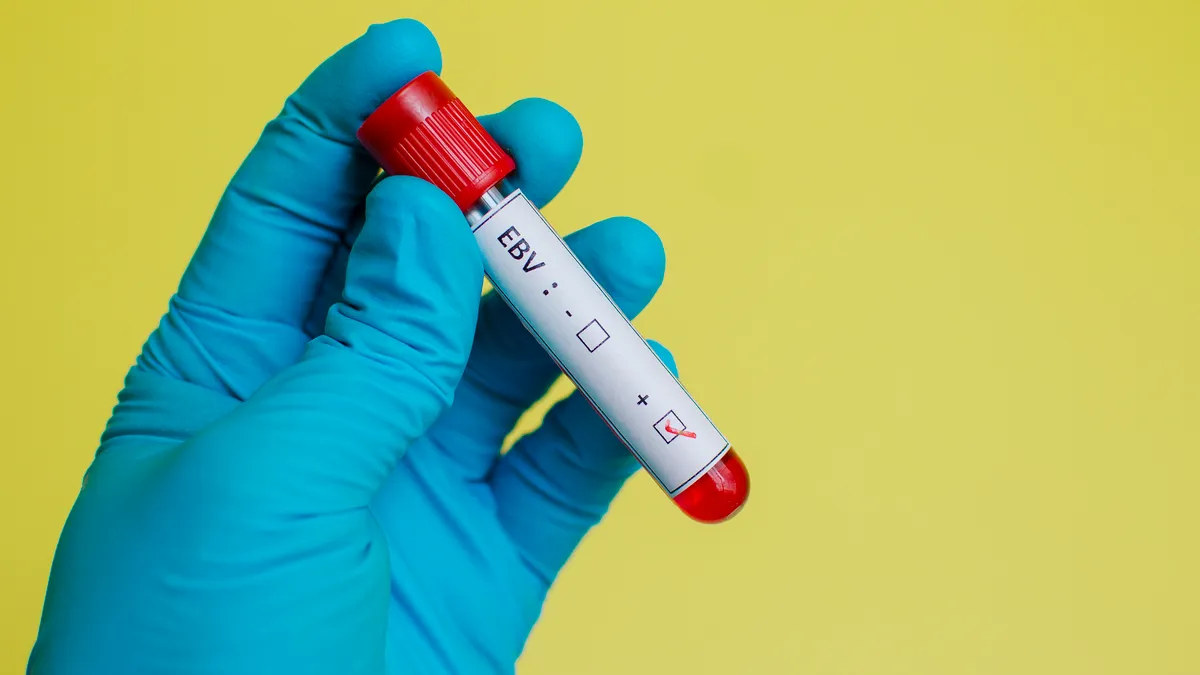Epstein-Barr virus often lurks silently without triggering any symptoms, but the ubiquitous pathogen is everywhere. A growing mountain of evidence has shown that it infects more than 90% of the world population and may be a catalyst for several serious diseases, including multiple sclerosis, long COVID and different types of cancers.
Part of the reason EBV is so prevalent is that after the infection clears, the virus remains, slumbering inside memory B-immune cells.
“Once you're infected, it lives in your body. You never get rid of it,” said Dr. Andreas Muehler, chief medical officer at Immunic Therapeutics. “And that makes it dangerous because you have this smoldering infection in you, just waiting for an opportunity to escape.”
Many studies have revealed links between EBV and conditions like MS, an autoimmune disease affecting the brain and spinal cord. EBV is also suspected to play a role in autoimmune diseases such as Lupus, but it’s difficult to prove the connection, Muehler said.
Still, unanswered questions linger in the space. Why, for example, do only certain people get post-infection conditions when pretty much everyone is infected?
Now, efforts to better understand EBV and make headway against the virus in pharma are ramping up. Companies such as Calder Biosciences and Moderna are advancing EBV vaccine candidates and hoping to overcome the scientific challenges that derailed past attempts to find an effective shot.
WestGene Biopharma recently won an IND approval for its investigational mRNA vaccine targeting EBV-positive cancers, clearing it for phase 1. Other companies, such as Atara Biotherapeutics and Viracta Therapeutics are focusing on treatments for EBV-linked diseases, such as post-transplant lymphoproliferative disease, a blood cancer that can arise after a transplant and EBV-positive lymphoma.
And Immunic is testing a small molecule drug, vidofludimus calcium, which is designed to reduce inflammation and protect brain neurons while blocking EBV replication, Muehler said. People who’ve been infected with EBV have 32 times the risk of developing MS and there is some evidence that virus reactivations may spur disease progression, he said.
Vidofludimus calcium is now in several mid- and late-stage trials for relapsing and progressive MS. An interim phase 3 analysis of vidofludimus calcium revealed some positive results, and the company plans to release more phase 2 data in April 2025.
“If this data set continues to show a neuroprotective effect for vidofludimus calcium, we believe our drug may be positioned as a first-in-class oral treatment option for progressive MS, a form of MS with highest unmet medical need,” Daniel Vitt, CEO of Immunic, said in a written release.
In particular, vidofludimus calcium could ease the debilitating fatigue that often plagues MS patients.
Fatigue is a common denominator in conditions linked to EBV, and is also a hallmark of some long COVID cases that show evidence of EBV reactivation, Muehler said. One study found EBV reactivation in 50% of long COVID patients with fatigue, compared with only 20% of those without.
This link is why an investigator-sponsored trial in Germany is now testing vidofludimus calcium as a long COVID treatment.
“There remains an urgent need for the treatment of Post COVID Syndrome and its related symptoms,” Dr. Maria Vehreschild, head of the Department of Infectious Diseases at the University Hospital Frankfurt and principal investigator for the RAPID_REVIVE trial, said in a release. “Vidofludimus calcium is an ideal candidate for our trial, due to its proven antiviral and anti-inflammatory effects, as well as its potential ability to prevent EBV reactivation and reduce fatigue. We look forward to further enrolling patients in this trial.”











